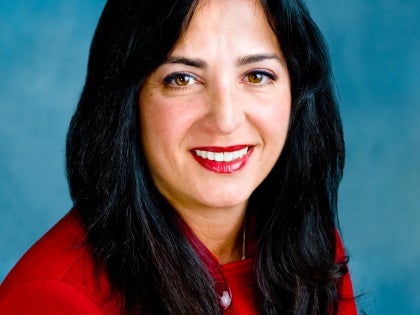
Legislator Raises Specter Of 1970s Financial Crisis
Dem state Sen. Savino appears before Advance Editorial Board with GOP challenger Thomas
STATEN ISLAND, N.Y. -- Those who remember the financial meltdown of the mid-1970s, when New York City almost went bankrupt, had better get ready for some déj vu, state Sen. Diane Savino told the Advance Editorial Board yesterday.
The current economic downturn "is worse than the 1975 fiscal crisis," said Ms. Savino (D-North Shore/Brooklyn), who appeared before the board with GOP challenger Richard Thomas.
When lawmakers return to Albany on Nov. 18, Ms. Savino said, they will be facing an $8 billion deficit, and will have to cut $2 billion from the state's operating budget.
"We're going to actually have to be serious about being the safeguards of the public's money," she said. "I'm not sure many of my colleagues know how bad it is."
Ms. Savino said that $13.5 billion in school-construction money allocated to the city by the state could be at risk, and that the plan to redevelop the Stapleton home port "might fall off the table."
"The challenges are enormous," she said.
Ms. Savino, who ran unopposed in 2006, is seeking a third term in the Senate.
Thomas, who failed to get on the ballot to challenge her two years ago, said Ms. Savino had failed to grasp the "nuts-and-bolts" issues facing the North Shore.
Thomas lambasted Ms. Savino for not doing enough to halt the controversial facility for the mentally ill planned for St. George. The facility could house ex-cons and recovering drug abusers.
"How did it get to where you could have convicts walking the streets?" Thomas asked. "More could have been done to stop that facility."
Ms. Savino, who has been at the forefront of the effort to stop the project, bristled at the criticism.
She laid out for Thomas how she'd actively opposed the facility since 2005; lobbied then-Gov. George Pataki's office to stop it; testified about it twice before Community Board 1, and helped pay for a public-awareness campaign against it.
"Nobody can say with a straight face that I have not been the most vocal opponent of this project," she said.
